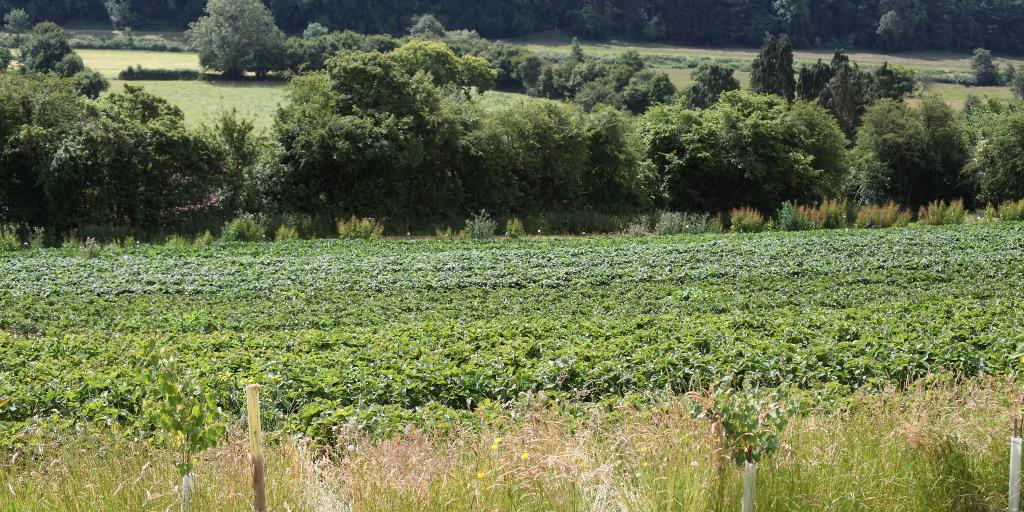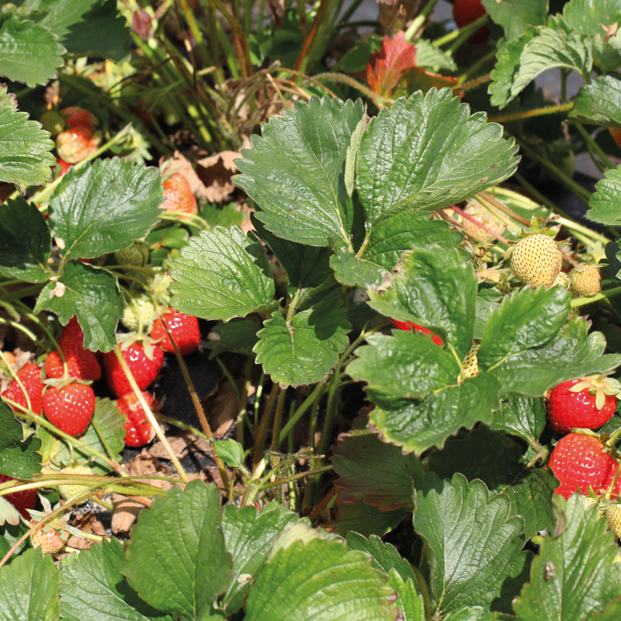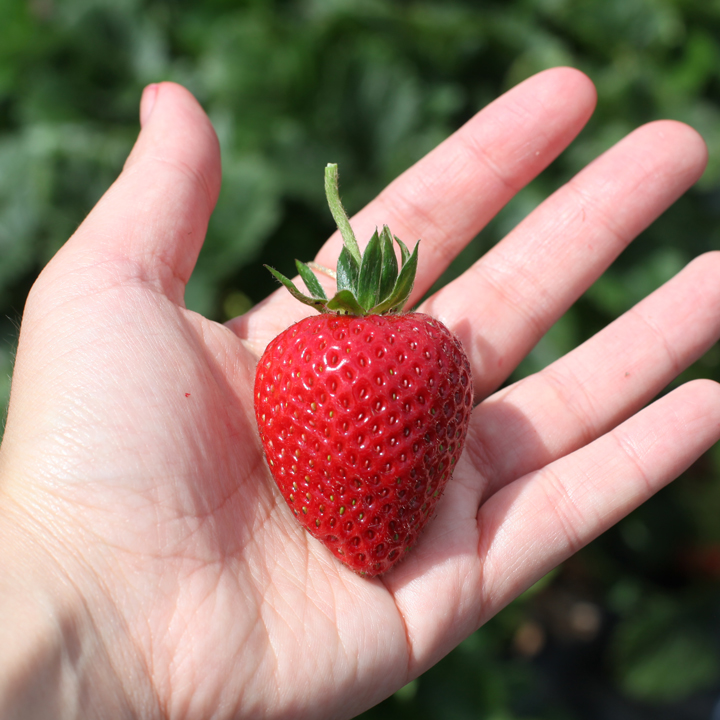Do you love a strawberry? We do. There’s nothing sweeter than ushering in (and devouring) our beautiful British summer soft fruits. Strawberries are very delicate little things and hard to grow on a big scale. But on big scales they are grown, so how does it happen?
Strawberry fields for forever

Living is easy with eyes closed but I want to understand everything I see. So I’ve been digging around and have unearthed some remarkable info. But first, let’s have a quick organic recap.
• They use things like ladybirds instead of petrochemocals to control pests. Bugs not drugs! - They allow weeds to grow so insect life is abundant (and bird life is too).
• Organic farms are a haven for wildlife and biodiversity, protecting plant and animal species that are pushed out in most other farming systems. - They use crop rotation and organic manures to fix nitrogen into the soil instead of spraying synthetic fertilisers.
• Healthy, organic soil captures carbon and is more flood and drought resistant. (And boy are we seeing some weather these days.) One handful of organic soil contains more living organisms than people on the planet.
All this future-proofing means, like good girls and boys, we have to share. Share with all our cohabiting species and future generations. This can mean lower yields* and therefore higher prices. But cheap, unsustainable food comes at a cost. Like the £1 teeshirt, the £1 punnet of strawberries has hidden tolls. As Martin Soble, our stupendous strawberry farmer says, ‘when you push nature too hard, it goes wrong.’
So how does it go down in the strawberry fields?
Imagine you’re an organic farmer, like our Marin Soble from Herefordshire, whose perfectly delicious but not always pretty wonky strawberries are in our shop at this summer. You rotate your crops to naturally fertilise the soil. Every three years each field has a couple of years off so you can grow an ensemble of clovers, grasses and chicory. These deep rooted plants play a vital role in fixing nitrogen and other nutrients into the soil. So when it’s fruit time for the field, the soil is rich, healthy and resilient.


Now change those wellies over to those of a non organic farmer. You supply supermarkets and you need big yields to work with the rather small prices you are paid. Crop rotation isn’t possible; you need all your land to produce fruit all the time. The soil can’t do what it’s best at doing – cultivating healthy plants – and it gets sick.
So what do you do?
If you were an organic farmer you’d nurture the soil with organic manures and mulch (farm lingo bingo: old plants). But you need a quicker solution. So you sterilize the soil and spray on chemicals to make the plants grow. And don’t forget to spray on the insecticides and pesticides. You don’t want those aphids enjoying a little light lunch, do you?
On the organic hand, our hero Martin lets nature do the heavy lifting. “If we get aphids we call in the ladybirds. They will deal with it. We never put anything on our strawberries.”
Ladybirds, shadybirds. Your soil is getting sicker and sicker and with no other plants growing nearby the ladybirds (and other wildlife) have done a runner.
So what do you do?
Scrap the soil! Just move on, it’s no use to you now. You cover your field with plastic sheeting to contain the diseased soil, and you plant your strawberries in grow bags on top of the plastic.
Then you realise, hey – I could grow this anywhere! So you do away with the grow bags and pop the plants in a long metal gutter. The roots attach to coir (you know, doormat stuff made from coconut husks) which offers no nutrients or benefits other than a foothold for the roots. You feed the strawberry plants a mixture of water and chemicals, pop a massive polytunnel over it so you don’t have to worry about all that pesky weather, and bob’s sister’s brother! Strawberries.
Strawberries that have been grown entirely without soil.
Not in the land, not on the land, but from a chemical and water solution. It’s called tabletop growing (the metal gutters are positioned at table height so people don’t have to bend down, which makes harvesting quicker) and pretty much every non-organic supermarket strawberry is grown this way.
Now, listen, this is one way of getting lots of cheap strawberries onto those supermarket shelves. Affordable fruit is no bad thing. What is bad is that the soil is being routinely exploited and ignored.
From where we stand, the soil is queen. It’s the basis of a healthy planet. It’s the beginning and the end of a resilient, sustainable food system.
We love our soil, we love our bugs, we love our strawberries, we love Martin Soble, we love organic and we love the future. So next time you pop a strawberry on your plate, pause and ask if it’s a planet saving type, or a tabletop type.
*There’s plenty to go round. Enough food is grown globally to feed 15billion people and current global population is 7.7bn.


